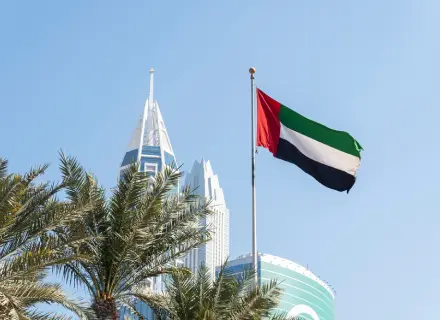The year 2025 has begun on a good one for the UAE’s non-oil sector, with robust growth and a substantial increase in commercial activity. However, capacity constraints constituted a significant challenge to the sector, according to a business study.
The seasonally adjusted S&P Global UAE PMI was 55.0 in January 2025, just slightly down from the nine-month high of 55.4 in December 2024, owing primarily to capacity challenges, which have been a major issue for the sector.
Favourable market circumstances and softening cost constraints resulted in a spike in new orders, but this had no effect on inventories, which rose only marginally despite robust purchasing increases.
According to the poll, “enterprises were struggling to contain backlog volumes amid soaring demand and administrative delays,” with the latter caused by sluggish client payments.
Concerns about competitive pressures also dampened optimism, which fell to its lowest level in almost two years.
Businesses reported a continuing significant gain in sales volumes, driven primarily by domestic demand, while growth in new export orders practically stalled, according to data.
Non-oil businesses were also able to benefit from favourable price pressures, with the average cost burden rising at the slowest rate in 13 months, despite signs of higher transport and machinery costs and a faster rise in wages.
The decrease in inflation encouraged firms to increase their procurement of inputs at the start of the year, with non-oil companies choosing to raise their selling prices in January, marking the first increase in four months.
According to David Owen, Senior Economist at S&P Global Market Intelligence, strong growth in activity and new business, as well as lower input cost inflation, indicate that the UAE economy is in excellent shape.
“Some will be surprised by the broad decline in business confidence over the last few months. Notably, total confidence had reached its lowest level since December 2022. Strong competitiveness and cash flow difficulties resulting from significant backlogs have looked to cast doubt on enterprises’ ability to continue to increase revenues, emphasising efforts to close the output-input price gap,” he said.
The survey results indicated a slight increase in employment numbers, albeit at the fastest pace since August 2024.
“A persistently low rate of employment growth suggests that firms are lacking the ability to hire in order to tackle backlog issues,” according to Owen.
Business conditions in Dubai’s non-oil private sector improved significantly in January, coming in slightly higher than the UAE’s estimate.
The headline PMI was 55.3, down just slightly from December’s nine-month high of 55.5.
Total activity increased in response to new business inflows, with poll panellists citing favourable market conditions. Cost pressures also eased, with input price inflation reaching a three-month low.
However, non-oil firms reported only minor increases in employment and inventories in January, indicating a bleak picture for future business activity. Output estimates have also fallen to their lowest level in over four years.

